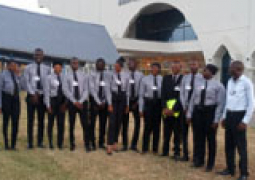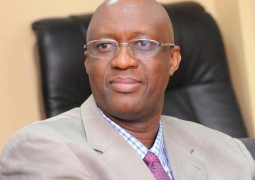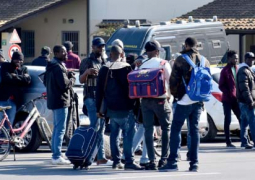By Sheriff JANKO
As The Gambia played host to the Second Ordinary Session of the ECOWAS Steering Committee Meeting of the Regional Electricity Assess Project (REAP), officials have renewed their resolve to boosting regional electricity interconnection in their quest to ensure affordable and efficient energy supply in countries under the project.
The two-day forum currently underway at Bakadaji was an initiative created to help member countries have access to electricity through regional interconnections. It attracted participants from The Gambia, Guinea Bissau and Mali.
Besides, the objective of this Banjul forum is to conduct the mid-term review of the project, facilitate peer-to-peer exchange of the project experiences among the Project Implementation Units (PIUs) and provide implementation support to the PIUs and the Regional Coordination Units (RCU).
Addressing the gathering, Gallo Saidy, managing director of the National Water and Electricity Company (NAWEC), while describing the forum as historic, maintained that the move is a testament to the growing momentum and shared commitment across the sub-region to deliver on the promise of universal access to the people.
NAWEC MD said that his institution is the implementing agency in The Gambia and thanked the Project Implementation Unit for their support.
He also talked about the project, which he said, is structured around two scopes, both of which are progressing with determination and resilience.
Despite the ongoing delays, MD Saidy observed that they’ve reached an impressive 94.8% overall implementation progress and a 91.3% installation rate under the original scope.
He noted that ECOREAP is one of The Gambia's flagship initiatives set to transform lives and targeting 395 rural communities, who he said, would receive electricity for the very first time.
In the same vein, MD Saidy spoke of government’s resolve to make sure that the country achieves 100% electricity access for the entire nation and that goal is within reach.
“We are almost there in terms of meeting this as we’re currently up to 90% by the end of this year. So, there will be 90% access to all communities in the Gambia and this ECOWAS project is one of the backbones for that.”
Also speaking, Ireneu Da Silva, Director General of Electricity Companies of Guinea-Bissau (EDGB), explained that EDGB has the statutory responsibility to deliver electricity to all regions of Guinea, something he said, will happen with the conclusion of this project.
“As I had already emphasized in our meeting of the pilot committee held in July in Abuja, I would like to emphasize that PRAE is an important one which is structuring the project for the future of Guinea-Bissau.”
With the construction of 1,655 km of mid-voltage lines, 432 km of low voltage lines and 120 power stations, MD Silva, sounded optimistic that the project would help to roll out electricity distribution to the interior of the country to about 90 towns, and to be able to meet the needs of these populations.
Oussouby Mary Dit Ousmane Diarra, Director National Energie Mali, spoke about the impact of the project in his country, saying the transfer of this project will allow the construction of 1,574 kilometers of high-voltage lines; 288 HTA distribution posts; 1,376 kilometers of low-voltage lines, all of which will allow connectivity to 60,860 new subscribers to the interconnected network.
These projects, he added, will also allow 214 localities to have permanent access to electricity.
For his part, William Baidoe, director of Energy and Mines, ECOWAS Commission, on behalf of the President of ECOWAS Commission, acknowledged the resilience and professionalism demonstrated by the National Coordination Units.
“At our meeting in Abuja in July 2025, we noted encouraging progress, but did as well note some challenges that could affect the initial project timeline.”
Based on those elements, he said, the meeting recommended discussions towards extending the project until 31st December 2026, in order to ensure full completion of activities across the three beneficiary countries.
ECOWAS Commission official also shared the 2026 Annual Work Plans and would also be examined and validated during this session, a move that will define their roadmap for the final implementation phase of the project.
Read Other Articles In Headlines





